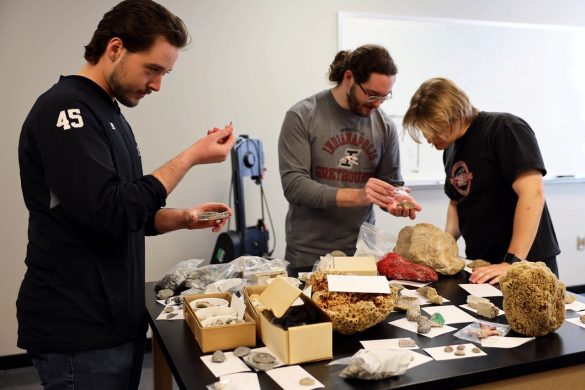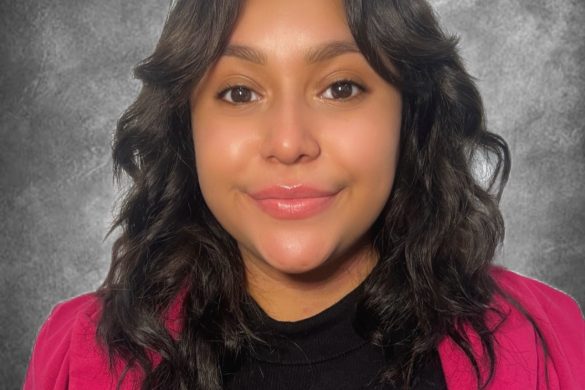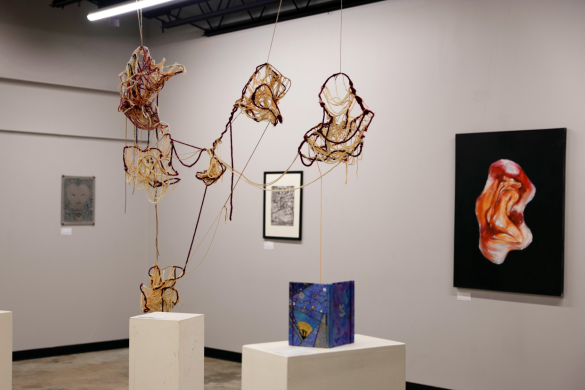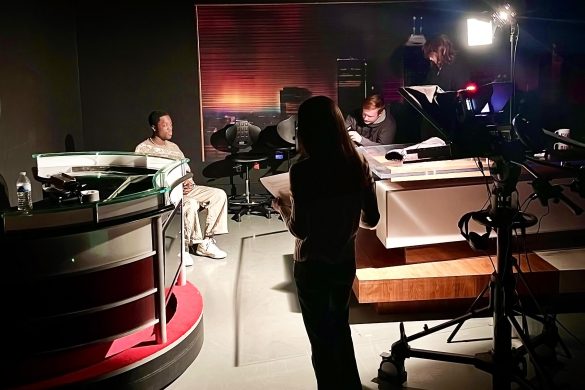Cung Bik Zaathang
 Cung Bik Zaathang is a Burmese political asylee who has lived in the United States for nearly 17 years and the owner of the first Burmese restaurant in the Indianapolis area, Kimu Restaurant. Zaathang and his family first moved to Fort Wayne from Burma, and during their year-and-a-half spent in the city, Zaathang worked at a local restaurant. When he and his family moved to Indianapolis, Zaathang then worked for a sushi company for nearly eight years while saving up enough money to open Kimu Restaurant, which he had operated years before in Burma.
Cung Bik Zaathang is a Burmese political asylee who has lived in the United States for nearly 17 years and the owner of the first Burmese restaurant in the Indianapolis area, Kimu Restaurant. Zaathang and his family first moved to Fort Wayne from Burma, and during their year-and-a-half spent in the city, Zaathang worked at a local restaurant. When he and his family moved to Indianapolis, Zaathang then worked for a sushi company for nearly eight years while saving up enough money to open Kimu Restaurant, which he had operated years before in Burma.
“It was very difficult for me at first,” Zaathang said, “because when I was in Burma, we just had easy work and weren’t too busy. When I came here [to the U.S.], I worked for the sushi company and had to work seven days a week, no days off. For almost seven or eight years, I only had one day off a year, that was Christmas day.”
Zaathang said that one of the major differences he noticed between Burma and the United States is the job market. He explained that most families in Burma only have one person who works, but in the United States, the whole family must work.
According to Zaathang, the hardest part of moving and settling in the United States was learning English. Although he and his family had to make many adjustments, Zaathang maintained a positive attitude.
“When we first came here, we could not speak English very well, so we had that barrier,” he said. “We did not have transportation or experience. So it was a little bit hard to get a job. But it was not too long until some people helped us and gave us jobs. It was not too hard [coming to the U.S.] for me, only a little bit.”
Equal opportunity is something that Zaathang values highly after having lived in the United States. He claimed that when he came to the United States from Burma, he felt as though he had the same chances and opportunities to earn a living that U.S. citizens did. He explained that because Burma is a developing country, job opportunities are extremely limited.
“I am appreciative,” Zaathang said. “Since we have been here, we have an equal chance with the citizens and other people. So we can work like them. We can get a salary, and we can get wages. This was a surprise to me when I came here.”
Zaathang said that when he first moved to Indianapolis, there were only about 20 or 30 Burmese people living here. But because of the hospitality of neighbors and the opportunity for jobs, the community has grown significantly.
“When we got here [Indianapolis], we got a lot of help from some refugee agencies like Catholic [Charities] and Exodus [Refugee Immigration Inc.],” he said. “They would help us get jobs, to find apartments, and if we wanted to learn English, they would make arrangements for us. We like to live here because people understand us, and wherever we go,
people are very, very welcoming.”
Zaathang mentioned that the first five or six years in Indianapolis were difficult because it was hard for his children adjusting to schooling due to the language. Eventually, though, the superintendent of the Perry Township school system incorporated Chin interpreters into classrooms, because of the large and growing Burmese population.
Zaathang said he and his family are devout Christians who regularly attend the Indiana Chin Baptist Church.
“Indiana and Indianapolis are some of the most religious places in the United States,” he said. “That’s a big reason why we chose to live here.”
Julie Mawi
 Julie Mawi, a Burmese refugee, owns and runs Chinsuh Child Care from her home in Perry Township. She is just one of the many Burmese refugees who have had a relationship with the Burmese-American Community Institute.
Julie Mawi, a Burmese refugee, owns and runs Chinsuh Child Care from her home in Perry Township. She is just one of the many Burmese refugees who have had a relationship with the Burmese-American Community Institute.
Mawi has lived in the United States for eight years, five of them being in Indianapolis. After her two years of working as an interpreter in elementary schools, she decided to apply for a license to open up her own pre-kindergarten childcare school. Mawi has been the principal and owner of Chinsuh Child Care since February 2014.
“In the very first week when I moved up here [Indianapolis], Mr. Elaisa [Vahnie] came to the church I went to,” Mawi said. “He offered, ‘We are going to train 20 Burmese ladies, whoever wants to participate in the childcare business.’ I think I was the first to sign up there. I was so afraid that he wasn’t going to take me. I told him, ‘Mr. Elaisa [Vahnie], I will not let you down, I promise. Take me in, let me train with you.’”
After speaking with Vahnie about training in the childcare business, Mawi worked at several Perry-Meridian elementary schools as an interpreter for Burmese students.
Mawi never imagined herself working in education before she came to the United States, but she found a calling to help educate others while she was in Texas. Mawi said that when she first moved to Indianapolis, she nearly regretted her decision, because of the hospitality she had received while she and her daughter lived with a couple in Texas.
“They [the family Mawi lived with] were very, very warm people. Wherever we went and whoever I met there were nice people that wanted to help us,” she said. “But when I moved up [to Indianapolis], I decided not to get anybody’s help. That was my motive to move up. They [Mawi’s host family] bought me a car, and they spoiled me. I was thinking, ‘If I’m here, then I will never grow up’. I decided that I had to stand on my feet and do it on my own. America is a land full of opportunity, so I knew that if I [became] educated, learned and went back to school, then I knew I could do something.”
Mawi decided to go back to school to get her General Equivalency Diploma (GED). She is currently enrolled at Ivy Tech Community College but plans to transfer to Indiana University Purdue University Indianapolis next semester.
According to Mawi, the most difficult part of her transition from Burma to the United States has been learning and adapting to everyday use of English.
“The biggest problem I have is the language,” she said. “For example, if somebody is teasing me, I don’t understand it the very first time. English is [a] very hard language to learn compared to Asian languages. It has a lot of tenses and vocabulary. So everything is new.”
Although she said adjusting to the language difference has been difficult, Mawi thoroughly enjoys the opportunity that the United States provides. She said that it also helps to have such a large Burmese community around for support.
Mawi claims that nearly every aspect of life is different in Burma when compared to the United States.
“Before I came to the United States I lived there [Burma] my whole life,” Mawi said. “If I had to say what was different it would be: everything. Everything is different. I feel like I live in a different world. We have been through a lot of hardship [in Burma], especially with the living standards, the hygiene, your environment and even education. In our country, if you have money, no matter if you understand what you are learning or not, you can just give money to the teacher then ‘Boom,’ you pass.”
Mawi said that she is still adapting to her environment and continues to learn new skills.
“I’m still learning every day,” she said. “I’m trying to adapt to the American way. I’m learning a lot, but I still have a lot left to learn.”








